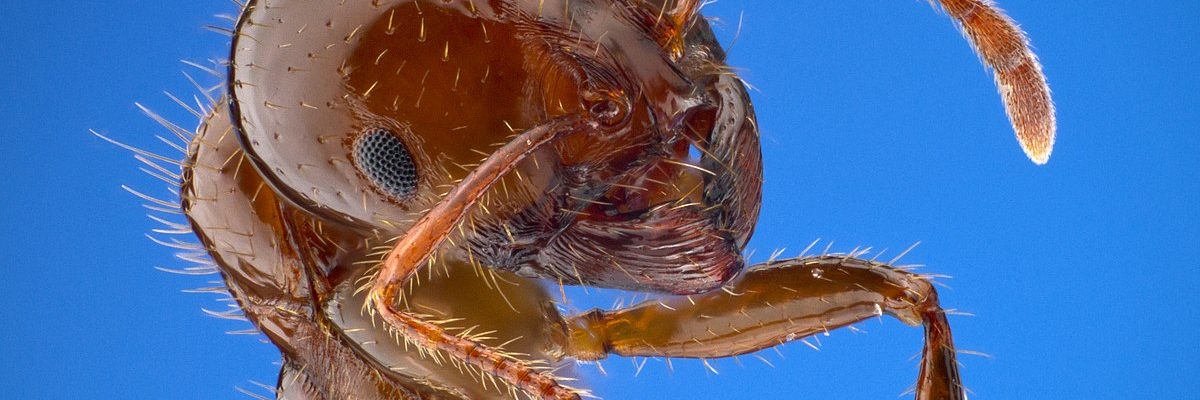Fire ant numbers will “surge” without further funding to help eradicate them. Source: Insects Unlocked, Wikimedia Commons.
An environmental group says that funding delays may be “catastrophic” for the efforts to eradicate fire ants in south-east Queensland.
Reece Pianta, a spokesperson from Invasive Species Council, said a leaked report from the Department of Agriculture and Fisheries revealed that, without increased funding, fire ant numbers would “surge.”
“[They] will probably spread into northern New South Wales and west, potentially even into the Murray Darling Basin — and that would be catastrophic,” Mr Pianta said.
Back in 2017, states and territories agreed to a $400 million eradication plan over ten years, but a public report from the Queensland auditor-general this year showed that a $593 million plan over four years was needed.
This funding would be split between states, territories, and the Commonwealth.
Mr Pianta said that, according to the Department of Agriculture and Fisheries leaked report, only $84 million was allocated to fire ant eradication in 2023-24, which is $49 million less than what was advised by the auditor-general.
“[That is] only enough to do some treatments on the southern Gold Coast and some treatments in the Scenic Rim area,” he said.
“[It is] not enough for full eradication, proper surveillance or enforcement of the control that prevent the spread of fire ants in human freight or cargo.”
Mr Pianta also said that not enough measures were being put in place to stop the fire ants from spreading west.
But Murray Watt, the federal Agriculture Minister; and Mark Furner, Queensland’s Agricultural Industry Development Minister, both disagreed with this.
“We totally reject the premise of the Invasive Species Council’s analysis,” Furner and Watt said in a joint statement.
“Ministers agreed to bring forward all of the remaining future years’ funding in the Red Imported Fire Ant 10-year Eradication Plan to this year, so that we could maintain the momentum in stopping the spread of fire ants in the next nine months,” the statement said.
“This means this year’s funding is now four times larger than was originally planned.”
Mr Pianta said that slow funding processes mean that “money to actually fund eradication work might not flow for six, nine, 12 months.”
“That delay would be catastrophic to our chances of eradicating fire ants,” he said.
“We’re in a race against fire ants and because of bureaucratic delays, the fire ants are winning that race.”





